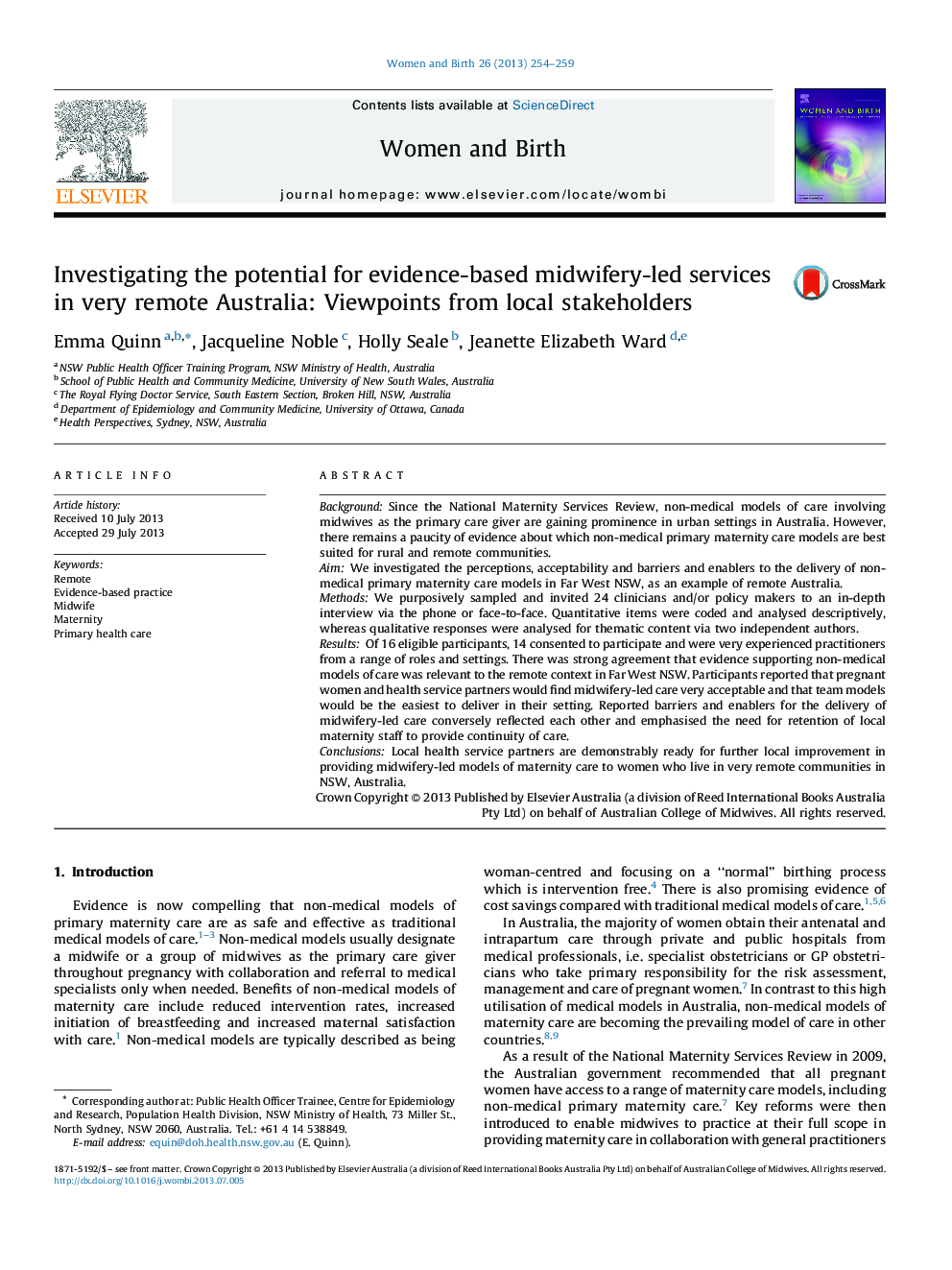| Article ID | Journal | Published Year | Pages | File Type |
|---|---|---|---|---|
| 2636150 | Women and Birth | 2013 | 6 Pages |
BackgroundSince the National Maternity Services Review, non-medical models of care involving midwives as the primary care giver are gaining prominence in urban settings in Australia. However, there remains a paucity of evidence about which non-medical primary maternity care models are best suited for rural and remote communities.AimWe investigated the perceptions, acceptability and barriers and enablers to the delivery of non-medical primary maternity care models in Far West NSW, as an example of remote Australia.MethodsWe purposively sampled and invited 24 clinicians and/or policy makers to an in-depth interview via the phone or face-to-face. Quantitative items were coded and analysed descriptively, whereas qualitative responses were analysed for thematic content via two independent authors.ResultsOf 16 eligible participants, 14 consented to participate and were very experienced practitioners from a range of roles and settings. There was strong agreement that evidence supporting non-medical models of care was relevant to the remote context in Far West NSW. Participants reported that pregnant women and health service partners would find midwifery-led care very acceptable and that team models would be the easiest to deliver in their setting. Reported barriers and enablers for the delivery of midwifery-led care conversely reflected each other and emphasised the need for retention of local maternity staff to provide continuity of care.ConclusionsLocal health service partners are demonstrably ready for further local improvement in providing midwifery-led models of maternity care to women who live in very remote communities in NSW, Australia.
